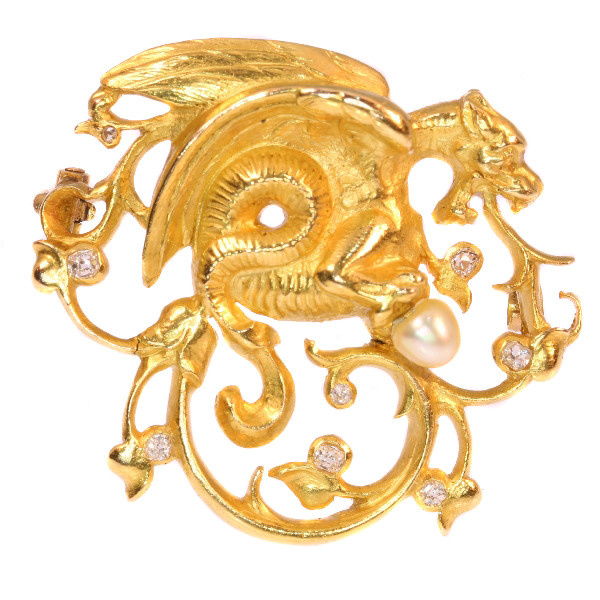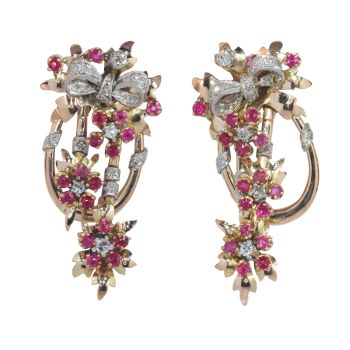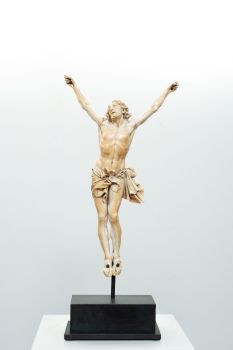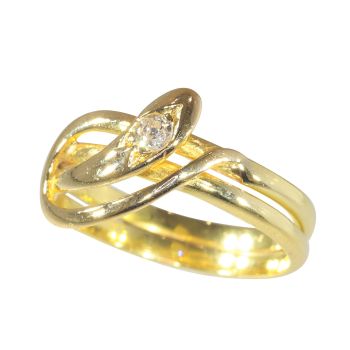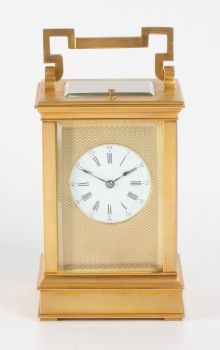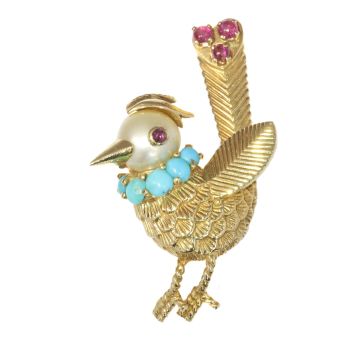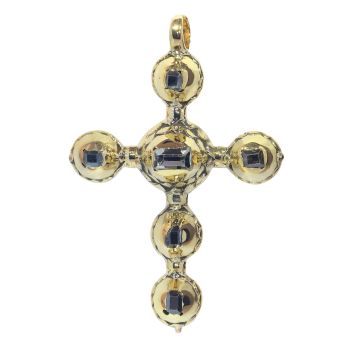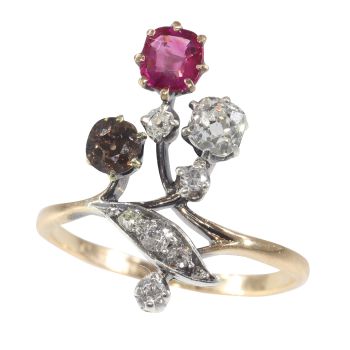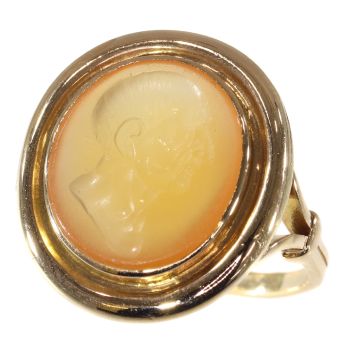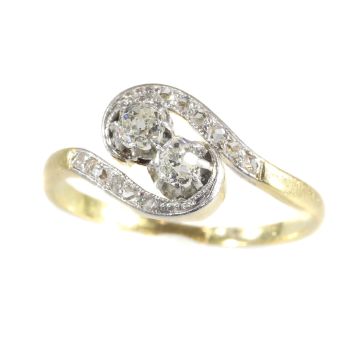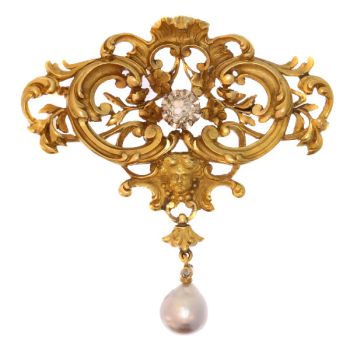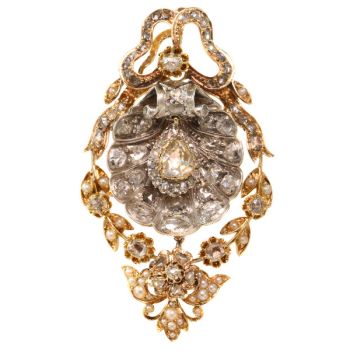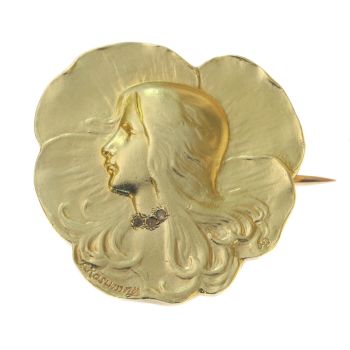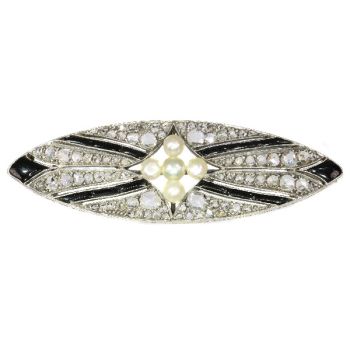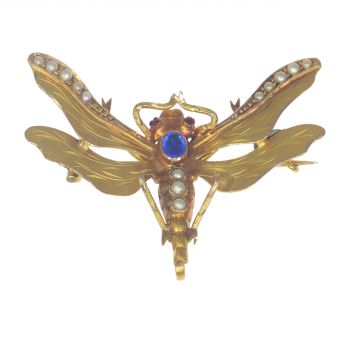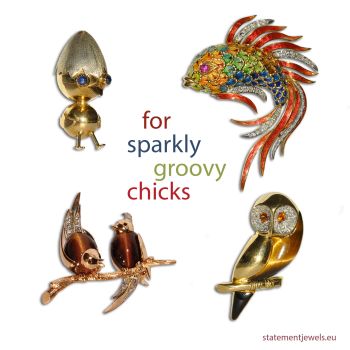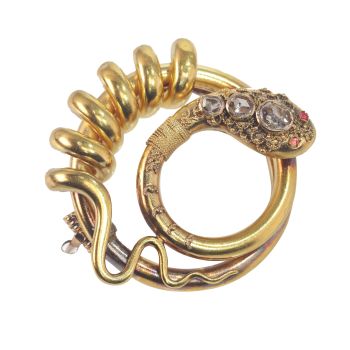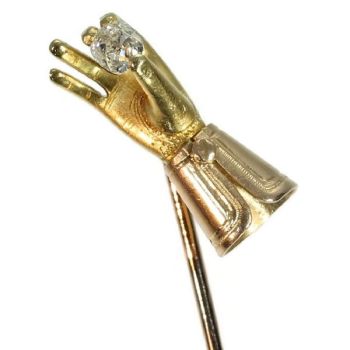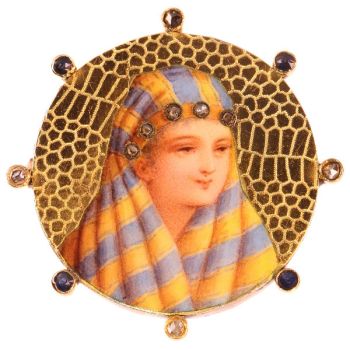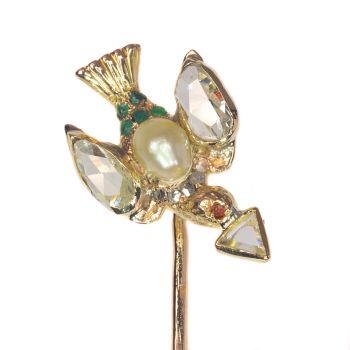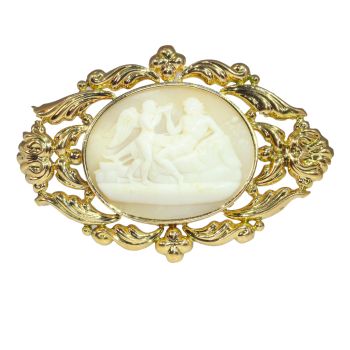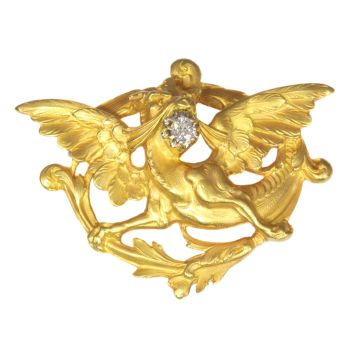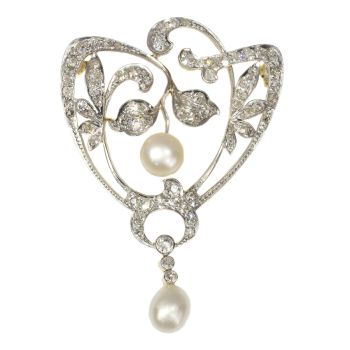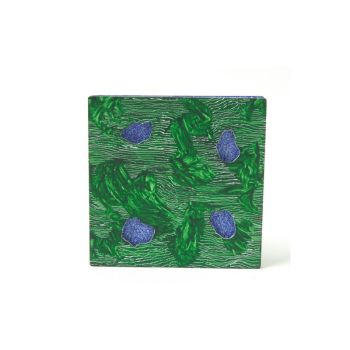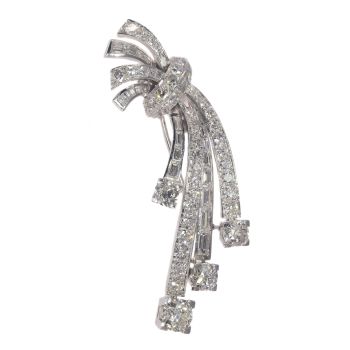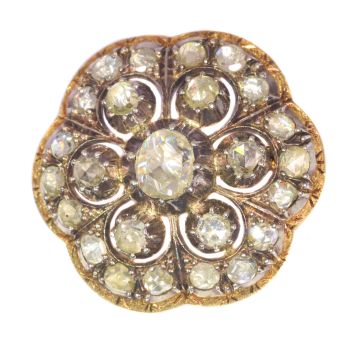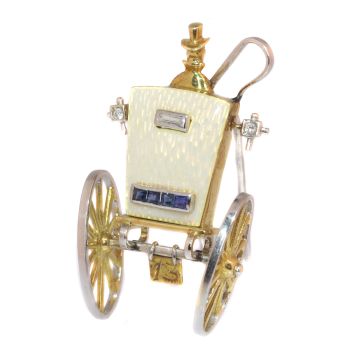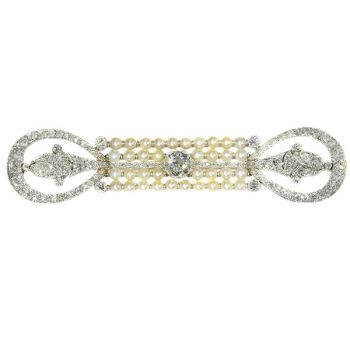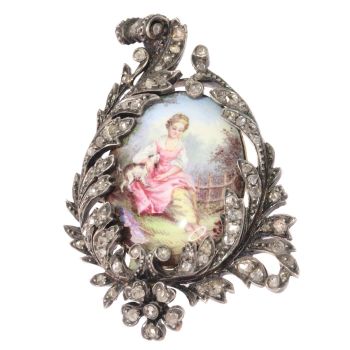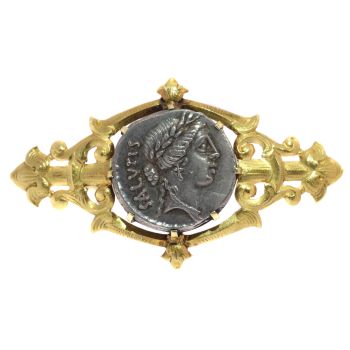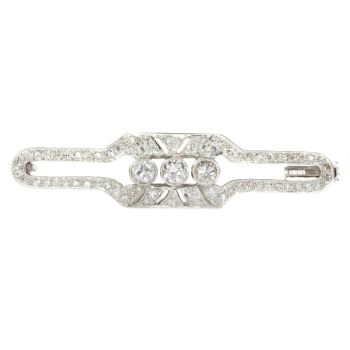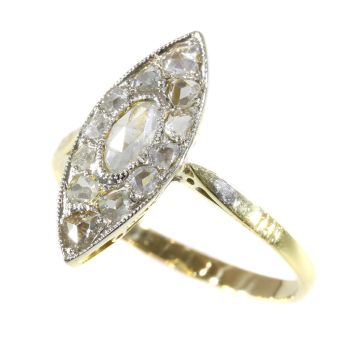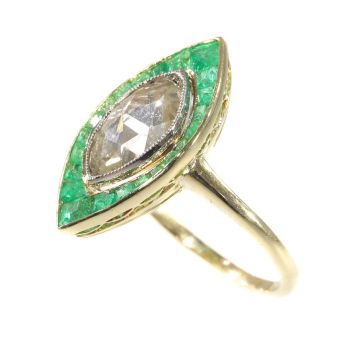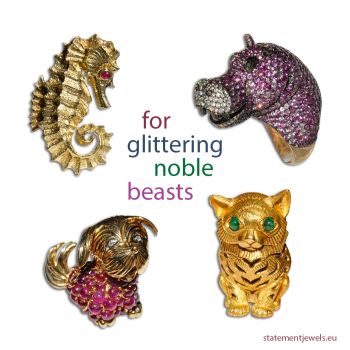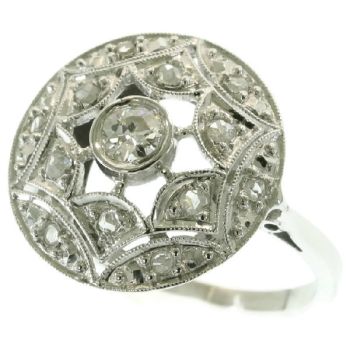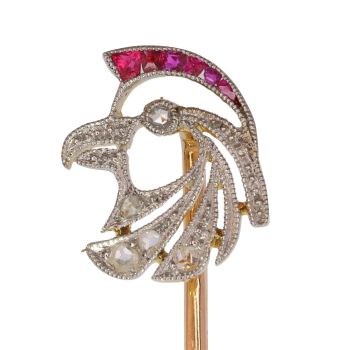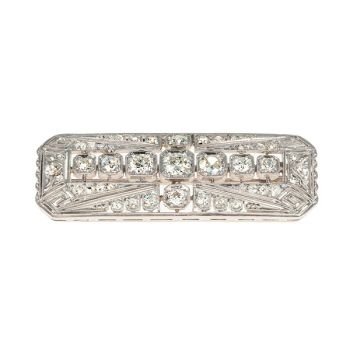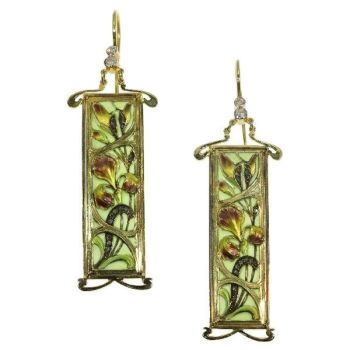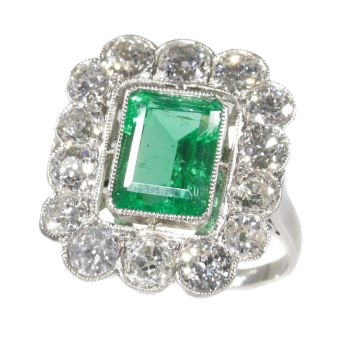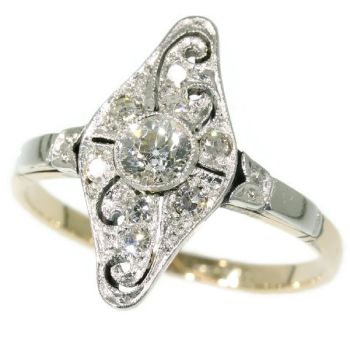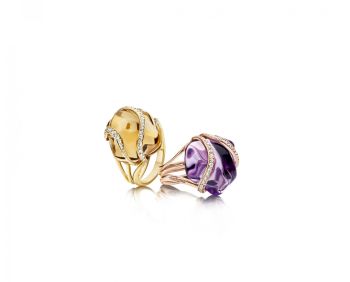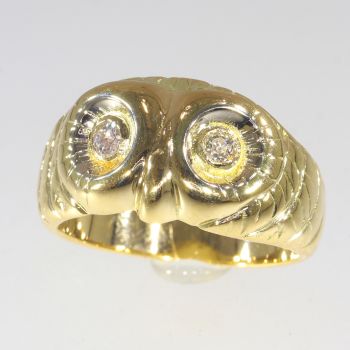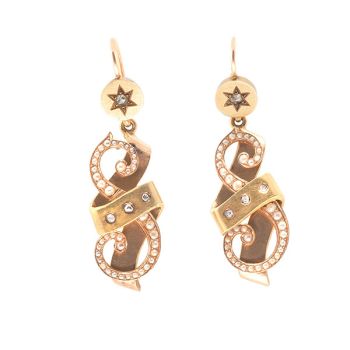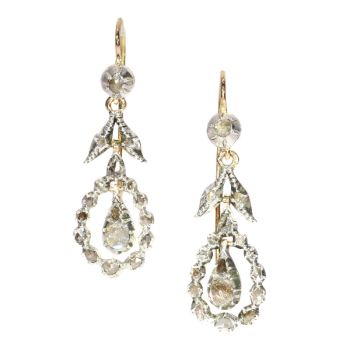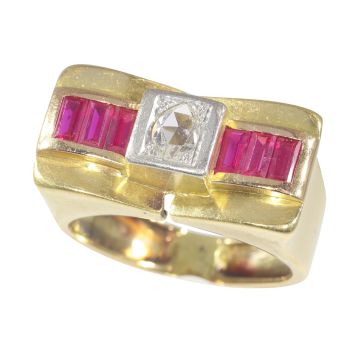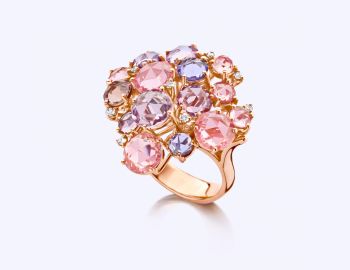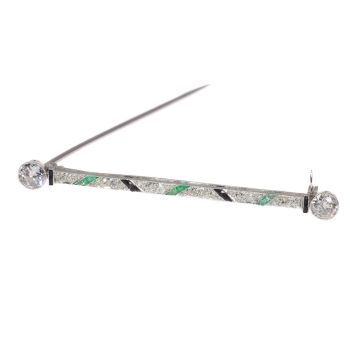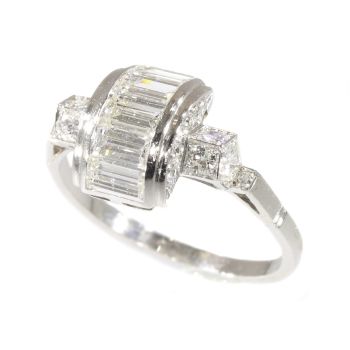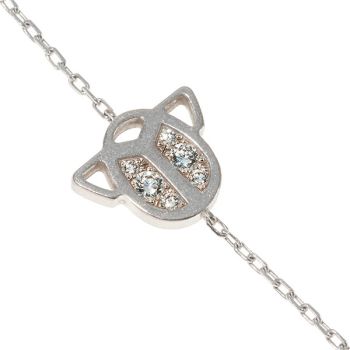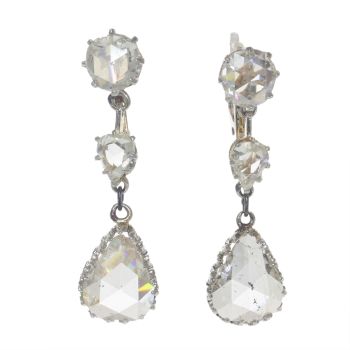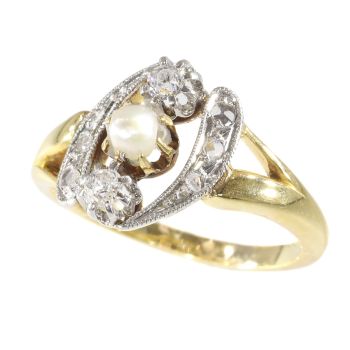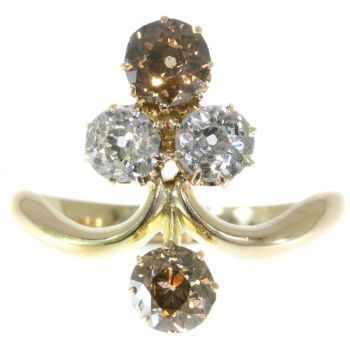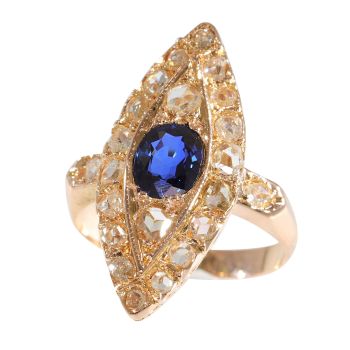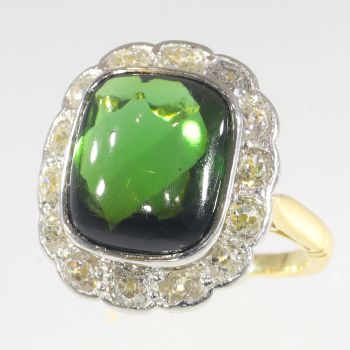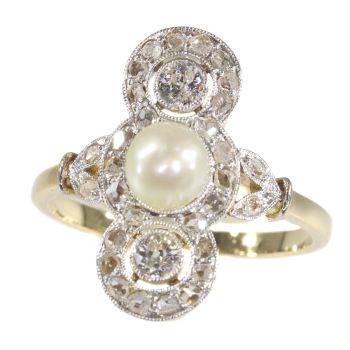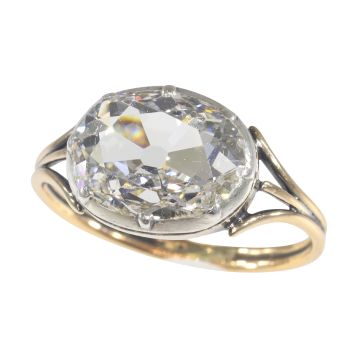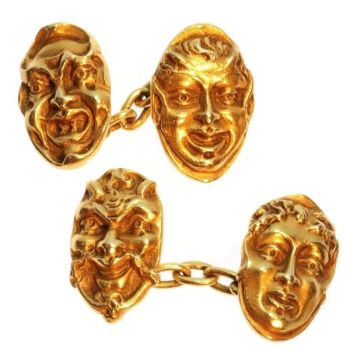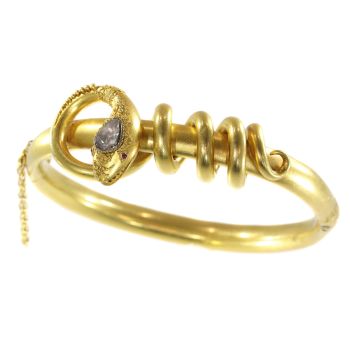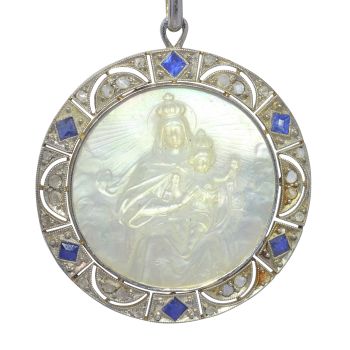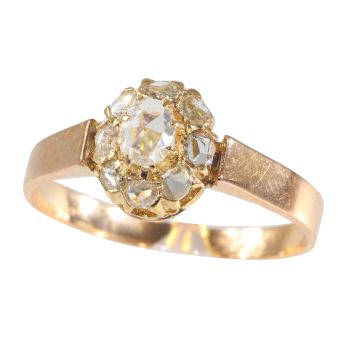Broche antigo de ouro de diamante e pérola Griffin 1890
Artista Desconhecido
DiamanteOuroPérolaGemstone
€ 2.650
Adin Fine Antique Jewellery
- Sobre arte
Antique jewelry object group: brooch
Condition: excellent condition
- (more info on our condition scale)
Country of origin:Although it does not carry any legible control marks we believe this to be of Belgian origin.
Style: something between the Late-Victorian and Belle Epoque style - Victorian decorative arts refers to the style of decorative arts during the Victorian era. The Victorian era is known for its eclectic revival and interpretation of historic styles and theintroduction of cross-cultural influences from the middle east and Asia in furniture, fittings, and Interior decoration.
Victorian design is widely viewed as having indulged in a regrettable excess of ornament.
And the Belle Époque style (Belle Époque is French for "Beautiful Era") was a period in European social history that began during the late 19th century and lasted until World War I. Occurring during the time of the French Third Republicand the German Empire, the "Belle Époque" was named in retrospect, when it began to be considered a "golden age" the major powers of Europe, new technologies improved lives and the commercial arts adapted Renaissance and eighteenth-century stylesto modern forms. In the newly rich United States, emerging from the Panic of 1873, the comparable epoch was dubbed the Gilded Age. In the United Kingdom, this epoch overlaps the end of what is called the Victorian Era there and the period named theEdwardian Era.
- See also: late-Victorianor more info on styles
Style specifics: Late Victorian / early Art Nouveau - The subject of this piece, although typical 19th Century, announces the coming of the Art Nouveau style.
Period: ca. 1890
- (events & facts of this era, poetry of this era, fashion of this era)
Source of inspiration: Mythology
Theme: Griffin - The griffin, a strange and legendary creature, usually represented as being part eagle and part lion (and occasionally part serpent). As the lion was traditionally considered the king of the beasts and the eagle the king of the birds, thegriffin was thought to be an especially powerful and majestic creature. Griffins are normally known for guarding treasure. In antiquity it was a symbol of divine power and a guardian of the divine. Most contemporary illustrations give the griffinforelegs like an eagle's legs with talons, although in some older illustrations it has a lion's forelimbs; it generally has a lion's hindquarters. Its eagle's head is conventionally given prominent ears; these are sometimes described as the lion's ears,but are often elongated (more like a horse's), and are sometimes feathered. The griffin motif is found in sculpture of the ancient Babylonians, Assyrians, Persians, and Romans; in beast allegories of the early Christians; and in Gothic architecture ofthe late Middle Ages. The griffin remains common in heraldry, representing strength and vigilance.
Material: 18K yellow gold
- (more info on precious metals)
Diamond(s): Seven old brilliant cut diamonds with an estimated weight of ± 0.20ct. (colour and clarity: G/J, si).
One rose cut diamond. We do not have the weight of this diamond which is normal in our trade when it comes to rose cuts.
- All diamond weights, color grades and clarity are approximate since stones are not removed from their mounts to preserve the integrity of the setting.
Precious stones: One pearl
Birthstones: Diamond is the birthstone (or month stone) for April and pearl for June.
- (more info on birthstones)
Hallmarks: No trace.
- (more info on hallmarks)
Dimensions: 2,95 cm (1,16 inch) x 2,60 cm (1,02 inch)
Weight: 10,80 gram (6,94 dwt)
Reference Nº: 18256-0156
Copyright photography: Adin, fine antique jewelry
- Sobre artista
Pode acontecer que um artista ou criador seja desconhecido.
Algumas obras não devem ser determinadas por quem são feitas ou são feitas por (um grupo de) artesãos. Exemplos são estátuas dos tempos antigos, móveis, espelhos ou assinaturas que não são claras ou legíveis, mas também algumas obras não são assinadas.
Além disso, você pode encontrar a seguinte descrição:
•"Atribuído a …." Na opinião deles, provavelmente uma obra do artista, pelo menos em parte
• “Estúdio de…” ou “Oficina de” Em sua opinião um trabalho executado no estúdio ou oficina do artista, possivelmente sob sua supervisão
• "Círculo de ..." Na opinião deles, uma obra da época do artista mostrando sua influência, intimamente associada ao artista, mas não necessariamente seu aluno
•“Estilo de…” ou “Seguidor de…” Na opinião deles, um trabalho executado no estilo do artista, mas não necessariamente por um aluno; pode ser contemporâneo ou quase contemporâneo
• "Maneira de ..." Na opinião deles, uma obra no estilo do artista, mas de data posterior
•"Depois …." Na opinião deles uma cópia (de qualquer data) de uma obra do artista
• “Assinado…”, “Datado…” ou “Inscrito” Na opinião deles, a obra foi assinada/datada/inscrita pelo artista. A adição de um ponto de interrogação indica um elemento de dúvida
• "Com assinatura ….”, “Com data ….”, “Com inscrição ….” ou “Tem assinatura/data/inscrição” na opinião deles a assinatura/data/inscrição foi adicionada por outra pessoa que não o artista
Você está interessado em comprar esta obra de arte?
Related artworks
- 1 - 4 / 12
- 1 - 4 / 24
- 1 - 4 / 24
- 1 - 4 / 12

